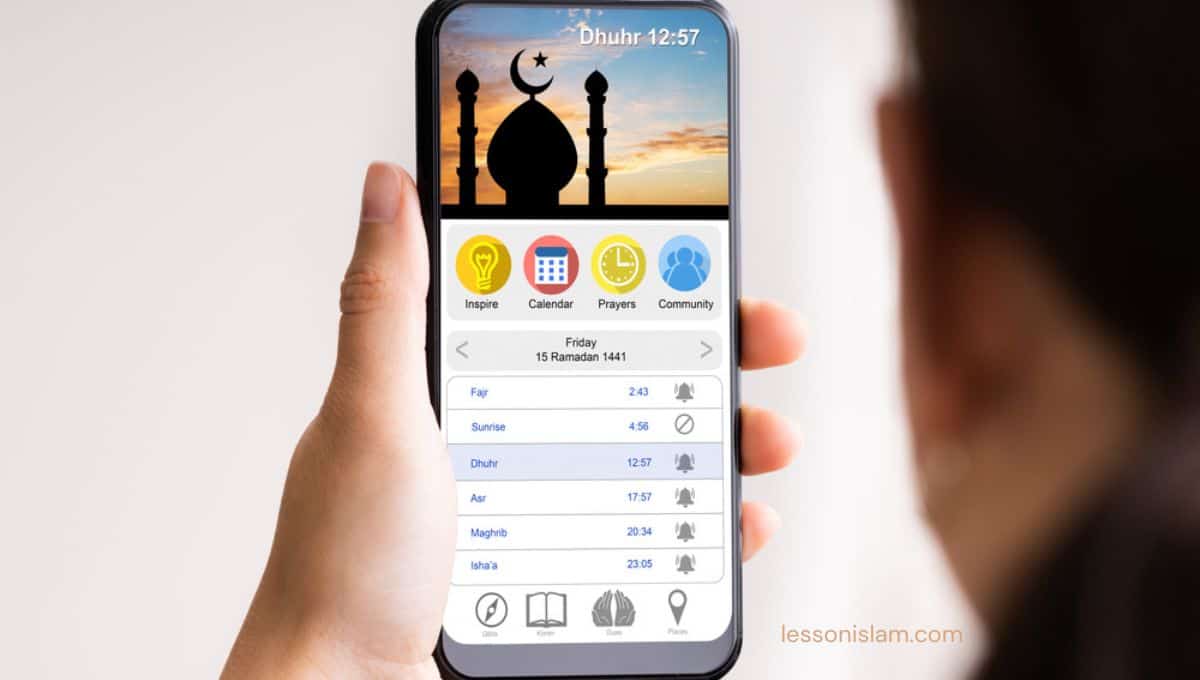There is a quiet, luminous hour that arrives every afternoon—after the sun has passed its zenith yet still warmly lights the sky—when time seems to pause. For Muslims around the world, this is the ‘Asr prayer window: the third of the five daily ṣalāh and the last formal act of worship before dusk. Far from being a hurried obligation squeezed between work meetings or school runs, praying ‘Asr is a gateway to spiritual renewal and daily balance. When observed with presence and intention, it resets the heart, recalibrates priorities, and injects barakah (divine blessing) into the remaining hours of daylight.
Understanding the ‘Asr Prayer
What Is ‘Asr and When Does It Occur?
‘Asr begins when the shadow of an object is equal to its length plus the shadow it cast at true noon, and it lasts until the sun’s rim touches the horizon. This window varies by season and geography, but it is typically between mid-afternoon and sunset. The Prophet Muhammad ﺺ called it “the middle prayer” (al-ṣalāh al-wusṭā) in the Qur’an (2:238), emphasizing its pivotal role.
Why ‘Asr Is Often Neglected
- Work and school schedules peak during these hours.
- Energy dips post-lunch, making concentration difficult.
- Many people underestimate its spiritual weight compared to Fajr or Maghrib.
Key Components of the ‘Asr Prayer
Prescribed Format
‘Asr is an emphasized sunnah of four obligatory rakʿāt preceded optionally by four sunnah rakʿāt. It is performed silently (sirr) except for the takbīr and taslim.
Spiritual Conditions
- Wuḍūʾ (ritual ablution): Physical purification that primes the soul.
- Ṣūrah al-ʿAṣr: Reciting this three-verse chapter reinforces the value of time.
- Khushūʿ (mindful presence): A tranquil heart focused on Allah alone.
7 Powerful Benefits of Praying ‘Asr
1. Mid-Day Soul Reset
By mid-afternoon, mental fatigue and worldly distractions often peak. ‘Asr functions like a spiritual defibrillator, shocking the heart back to its true purpose. Standing before Allah, the believer re-centers on the ākhirah (Hereafter), releasing stress and refocusing on eternal priorities.
2. Barakah in Time Management
People who consistently pray ‘Asr report a mysterious increase in productivity after the prayer. This is not magic; it is barakah. The Prophet ﺺ said, “Whoever guards the ‘Asr prayer will have his deeds raised and his day extended with goodness.”
3. Protection from Hypocrisy
In a famous hadith, missing ‘Asr is equated with losing one’s family and wealth. Scholars interpret this as spiritual loss. Regularly safeguarding ‘Asr builds a shield against nifāq (hypocrisy) because the prayer trains the nafs to bow to Allah even when inconvenient.
4. Social Reconnection
Mosques fill with professionals, students, and parents at ‘Asr. The communal prayer becomes a mini-town-hall where silāṭ al-raḥim (maintaining family ties) and business networking happen organically, all under the umbrella of worship.
5. Emotional Equilibrium
Clinical psychologists note that mindfulness practices at regular intervals regulate cortisol levels. ‘Asr offers divine mindfulness: bowing, prostrating, and reciting verses that redirect negative emotions into gratitude and tawakkul (reliance on Allah).
6. Preparation for the Evening Wind-Down
After ‘Asr, the sun begins its descent toward Maghrib. This prayer bookends the active day, signaling the soul to transition from hustle to reflection. Families who pray ‘Asr together often experience calmer evenings and more quality time before bed.
7. A Living Testimony of Faith
In workplaces where Muslims are minorities, stepping away for ‘Asr is a courageous act of ʿubūdiyyah (servitude). Each prayer is an unspoken daʿwah, reminding colleagues of a higher accountability and inspiring respect for disciplined spirituality.
Benefits and Importance
Table: Comparing ‘Asr to Other Daily Prayers
| Prayer | Primary Focus | Spiritual Mood | Unique Benefit |
|---|---|---|---|
| Fajr | Beginning & optimism | Hope | Angels witness the prayer |
| Ẓuhr | Mid-day grounding | Stability | Protection from midday heedlessness |
| ‘Asr | Re-centering | Balance | Barakah and daily renewal |
| Maghrib | Gratitude for sustenance | Thankfulness | Reminds of life’s brevity |
| ʿIshāʾ | Reflection & rest | Tranquility | Closes the day with forgiveness |
Practical Applications
Creating a 5-Minute Pre-‘Asr Routine
- Sip water and set intention to refresh both body and soul.
- Recite Ṣūrah al-ʿAṣr three times, pondering its warning about time.
- Make istighfār for the day’s shortcomings.
- Perform wuḍūʾ slowly, treating each limb as a canvas for mindfulness.
Workplace Integration Tips
- Block your calendar for 15 minutes each afternoon labeled “Focus Break.”
- Use a discrete prayer rug and compass app in a quiet corner or unused office.
- Pair up with a Muslim colleague to keep each other accountable.
- Educate HR about the legal right to reasonable religious accommodation.
Family Rituals
Turn the “‘Asr commute” into quality time. Parents can pick up children from school and pray together at a nearby mosque or park. One father shared:
“We call it ‘Asr Adventures’. We explore a different mosque every week, and afterward we read one hadith about time. My kids now remind me when it’s time to leave!”
Technology Aids
- Prayer apps like “Athan Pro” send gentle notifications 15 minutes before the window closes.
- Smartwatch reminders vibrate when the shadow hits the right length.
- Shared Google Calendar events labeled “‘Asr Break” keep the whole family synchronized.
Frequently Asked Questions
What happens if I accidentally miss ‘Asr?
Islamic law treats missed prayers seriously, yet with mercy. You must make up the qaḍāʾ as soon as you remember. While the missed time cannot be reclaimed, sincere istighfār and a renewed commitment to timeliness restore spiritual balance. The Prophet ﺺ said, “Whoever sleeps through a prayer or forgets it, let him pray it when he remembers.”
Can I combine ‘Asr with Ẓuhr while traveling?
Yes, under the dispensation of jamʿ al-taqdīm (early combining) or jamʿ al-taʾkhīr (delayed combining), a traveler may pray Ẓuhr followed immediately by ‘Asr. The distance required varies by school, but the overarching principle is ʿusr wa ḥaraj (alleviation of undue hardship).
How do I maintain khushūʿ when my workplace is noisy?
- Use noise-canceling earbuds playing soft Qur’anic recitation beforehand.
- Perform dhikr while walking to the prayer area to drown out distractions.
- Visualize yourself in al-Masjid an-Nabawi to anchor the heart.
Is it better to pray ‘Asr at the mosque or at home?
While congregational prayer carries 27 times the reward, the Prophet ﺺ also prayed at home when needed. Evaluate intention and consistency: if traveling to the mosque causes habitual delay or missed prayers, pray at home and gradually shift toward jamaʿah as logistics improve.
How do I teach children to value ‘Asr?
- Lead by example: Let them see you pausing video games or work.
- Make it sensory: Use a special ‘Asr corner with colorful prayer mats and a child-sized tasbīḥ.
- Story time: Narrate the hadith of the “middle prayer” in age-appropriate language.
- Digital badges: Create a sticker chart tracking their first 40 ‘Asr prayers.
Does ‘Asr have specific sunnah duʿāʾ or adhkār?
Post-prayer, the Prophet ﺺ often recited:
“Allāhumma innī as’aluka ʿilmanāfiʿan, wa rizqan ṭayyiban, wa ʿamalan mutaqabbalan.”
(O Allah, I ask You for beneficial knowledge, good provision, and accepted deeds.)
Conclusion
Praying ‘Asr is not merely a ritual to check off; it is the heartbeat of the afternoon, a sanctuary in time that realigns the soul with its Creator. The seven benefits—ranging from the tangible boost in productivity to the intangible shield against hypocrisy—collectively weave a tapestry of spiritual renewal and daily balance. By integrating simple routines, leveraging technology, and nurturing family traditions, every believer can transform this mid-day prayer into a powerful engine of barakah that fuels every subsequent hour until the stars appear. May our ‘Asr prayers become luminous milestones in our journey toward Allah, anchoring us in this life and propelling us to the next.
























Post Comment